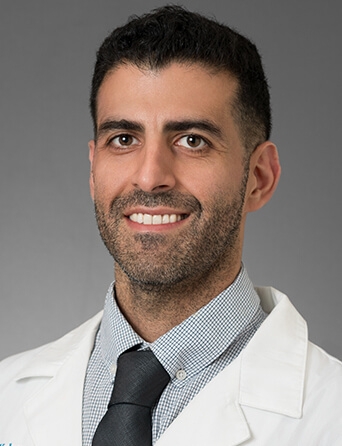Join Our eNewsletter!
Subscribe to our monthly newsletter to receive encouraging advice to help you lead a healthy lifestyle.

Vitamin D: Hype or Miracle?
Vitamin D has been quite the media star lately. Recent studies have tied vitamin D deficiency to an increased risk of Alzheimer's, depression, heart health and cancer. Other research suggests a possible link between vitamin D and weight loss. By now, you may be thinking of vitamin D as some sort of wonder vitamin. But before you dash out on a supplement run, here's a note of caution: More research is needed before the link between vitamin D and these conditions is fully known.
I say this without trying to downplay the importance of vitamin D because the fact is, vitamin D does have proven health benefits.
What We Know About Vitamin D
Vitamin D is found in cells throughout the body. It's a fat-soluble vitamin that's generated in the body when the skin is exposed to the sun's ultraviolet rays. It is also available in some foods. Common sources include salmon or tuna, beef liver, cheese, egg yolks, milk and mushrooms. Vitamin D also can be manufactured and added to foods (like orange juice) or produced as a supplement. Once in the blood stream, Vitamin D is carried to the kidneys, where it becomes Calcitriol.
Calcitriol helps promote bone growth and health. This means those with too little vitamin D may develop soft, thin and brittle bones. The immune system also needs it to ward off bacteria and viruses.

Too Much Isn't Good Either
Health benefits aside, vitamin D is not something you want to overdo. Too much vitamin D can damage the kidneys. It can also lead to confusion, disorientation and heart rhythm problems. Cases like this are most often due to overuse of vitamin supplements. For this reason, you should only take a daily vitamin D supplement if your vitamin D level was measured by a physician who recommended you do so.
And please don't abandon your sunscreen in an effort to boost vitamin D levels through extended sun exposure. Limit your exposure to the sun to 15 minutes on your arms and legs between 10 a.m. and 3 p.m. two to three times a week. At all other times apply your sunscreen so that you don't end up exchanging one health problem (vitamin D deficiency) for another (skin cancer).
How Much Is Needed?
The amount of vitamin D you need is based on several factors, such as your amount of sun exposure, diet, genetics, gender, age and activity level. A blood test can assess vitamin D levels. Talk to your doctor about whether you need vitamin D testing and supplementation. If you fall into the at-risk group for vitamin D deficiency, your doctor may order testing to assess current levels and then prescribe appropriate dietary changes and/or supplements.
More Research Is Underway
We're at an interesting juncture with vitamin D research. We're learning more and more about it but don't yet know if there's a cause and effect between vitamin D levels and heart disease, cancer and Alzheimer's, for example. We should know more within a few years as further research results unfold.
Meet Our Team
Our Family Medicine doctors provide services for adults and children at several Kelsey-Seybold Clinic locations throughout the Houston area, so you’re never far from the compassionate care you need.








